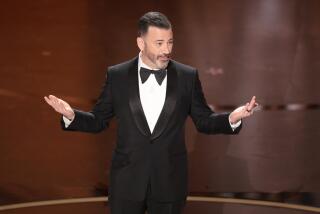Old Hollywood’s Lew Ayres served his country as a conscientious objector
Mel Gibson’s acclaimed World War II drama “Hacksaw Ridge” tells the fact-based story of Desmond T. Doss, the first conscientious objector to win the Medal of Honor after saving 75 men at the Battle of Okinawa without using a gun. For religious reasons, the movie shows us, Doss refused to even touch a gun yet still wanted to serve his country: “While everybody else is taking life, I’m going to be saving it,” actor Andrew Garfield says as Doss. “That’s my way to serve.”
Over the last century, there have been numerous famous pacifists, including Muhammad Ali, who was arrested as a draft dodger during the Vietnam War, had his boxing license suspended and spent several years in court before he was allowed back in the ring.
Other pacifists whose religious or philosophical beliefs kept them from war: “War and Peace” novelist Leo Tolstoy; British playwright George Bernard Shaw; philosopher and Nobel laureate Bertrand Russell, who spent six months in jail after opposing the U.S. entry into World War I; and British novelist Aldous Huxley, who was denied U.S citizenship when he announced he would not take up arms.
And then there was Lew Ayres.
Born in 1908, Ayres made his credited film debut in Greta Garbo’s 1929 silent “The Kiss” and became a star the following year in the Oscar-winning 1930 anti-war film “All Quiet on the Western Front,” in which he goes from a naïve young German eager to join the army to fight in World War I to a hardened, tired veteran of the harrowing battlefields.
According to film historian Marya E. Gates, Ayres began reading the Bible in the mid-1930s when his career was languishing. “He sort of transformed and he gave up his favorite things,” she said. “He used to be a hunter and a fisherman; he became a vegetarian and stopped hunting and fishing. He felt all life had value.”
When any man dies you are dying a little yourself.
— Lew Ayres
In a 1991 interview with the L.A. Times, Ayres said his religious odyssey was a result of a “fantastic sort of experience,” though he wouldn’t go into any details, telling this reporter, “My dear, that would take forever.”
When he was drafted in 1942 to fight in World War II, he was the star of MGM’s highly popular “Dr. Kildare” series in which he played the earnest young doctor opposite Lionel Barrymore’s gruff veteran Dr. Gillespie. So he registered as a conscientious objector on religious reasons. At the time of his decision, he said that to bear arms would cause him “to live in a nightmare of hypocrisy.”
Some 40 years later, L.A. Times columnist Jack Smith asked him if appearing in “All Quiet on the Western Front” influenced his decision.
“It wasn’t so much that,” Ayres told Smith. “[The film] showed the ugliness and horror of war, but it was the first time we had ever come to understand the enemy as someone with the same lives, values, needs as ours. When any man dies you are dying a little yourself.”
It wasn’t a popular position to hold at the time. Hollywood shunned Ayres and so did a lot of his fans. Exhibitors even took to refusing to book the movies he made.
Ayres spent two months in a conscientious objector camp before being transferred to noncombatant duty in the Pacific as a medic and chaplain’s assistant.
He was one of 16 medics during the bloody invasion of Leyte who set up the evacuation hospital. He was awarded three battle stars for bravery and donated his Army salary to the American Red Cross.
Much like Pvt. Doss, Ayres explained to The Times, he wanted to do “constructive work in the face of destruction.”
His exemplary service helped him return to Hollywood and feature films after the war. Though Ayres never achieved the stardom he had before the war, he scored a hit with his first post-war film, the 1946 thriller “The Dark Mirror,” and earned his first and only lead actor Oscar nomination as a gentle doctor who teaches a deaf-mute woman (Jane Wyman) how to use sign language in 1948’s “Johnny Belinda.” (Ayres lost to Laurence Olivier in “Hamlet.”)
He later starred in Otto Preminger’s 1962 political drama “Advise & Consent” and continued to work in film and television until just a few years before his death in 1996, including a particularly charming role as Mary Richards’ much older love interest in a 1977 episode of “The Mary Tyler Moore Show.”
More to Read
From the Oscars to the Emmys.
Get the Envelope newsletter for exclusive awards season coverage, behind-the-scenes stories from the Envelope podcast and columnist Glenn Whipp’s must-read analysis.
You may occasionally receive promotional content from the Los Angeles Times.







